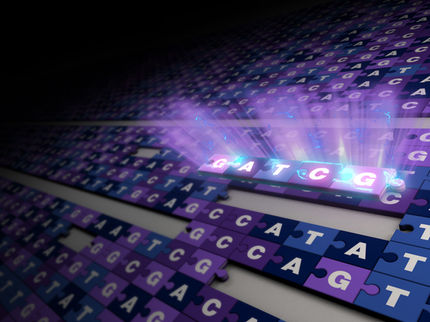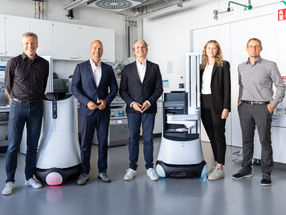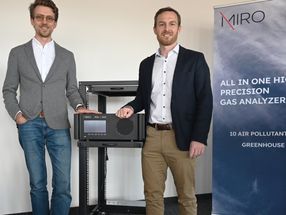Enzo Biochem Plans To Produce Single Copy DNA Probes For More Effective Treatment Of Genetic Diseases And Cancer
Enzo Biochem Inc. announced that, as a result of a licensing agreement, it plans to enter into the cytogenetics market by producing newly patented single copy DNA probes that can identify the minutest strands of DNA, opening the door to more effective treatment of genetic diseases and some cancers. The Company plans to combine the probes with its proprietary signal amplification technologies, which will enhance their effectiveness by allowing visualization at levels not achievable by other methods.
Single copy DNA probes offer a specificity in hybridizing genetic chromosomes not heretofore available for identifying elusive strains of inherited genetic diseases and cancers, allowing, among other things, for more precise clinical treatment. Current commercially produced DNA probes, while important and useful, are limited to primarily examining large sections of DNA in identifying relatively common genetic disorders.
Enzo will produce the single copy DNA probes in its manufacturing facility and market them to laboratories worldwide. The Company acquired a license to the technology from the Children's Mercy Hospital & Clinics in Kansas City, Mo., in addition to rights for any patents relating to this technology issued in the future. Enzo also acquired rights to approximately 50 DNA probes developed at the University, which in peer review publications have been listed as being able to identify a number of genetic maladies.
The technology involves the application and combination of fluorescence in situ hybridization (FISH) with human genome sequence information. Visualization of human chromosomes has been relatively common, however commercially available FISH probes, covering 100 to 300 kilobases, or 100,000 to 300,000 DNA bases, have been too large for their targeted DNA. Single copy probes, by contrast, are vastly smaller and more densely represented on a chromosome. They therefore can detect smaller lesions, in addition to being able to probe rare conditions, whereas current clinically available probes principally detect relatively common abnormalities.
Single copy probes thus can make for more precise treatments for individuals, even differentiating between two patients suffering what may otherwise appear to be the same disease. In addition, because the single copy probes are very small and derive directly from the genome sequences, they can precisely localize chromosomal breakpoints based on which chromosome harbors the hybridized signal.
Most read news
Topics
Organizations
Other news from the department research and development

Get the analytics and lab tech industry in your inbox
By submitting this form you agree that LUMITOS AG will send you the newsletter(s) selected above by email. Your data will not be passed on to third parties. Your data will be stored and processed in accordance with our data protection regulations. LUMITOS may contact you by email for the purpose of advertising or market and opinion surveys. You can revoke your consent at any time without giving reasons to LUMITOS AG, Ernst-Augustin-Str. 2, 12489 Berlin, Germany or by e-mail at revoke@lumitos.com with effect for the future. In addition, each email contains a link to unsubscribe from the corresponding newsletter.






























































